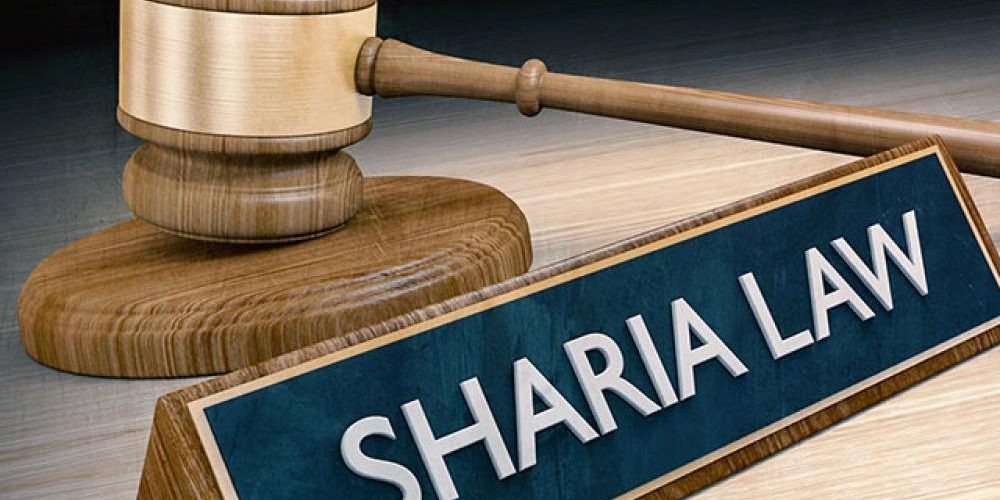Sharia Court in Oyo: Supporters and Critics Clash Over Religious and Legal Implications
 The proposed establishment of a Sharia Court in Oyo State has ignited widespread debate across Nigeria, with mixed reactions emerging on social media. The controversy began when the Supreme Council for Shari’ah in Nigeria, Oyo State chapter, announced plans to launch the court by January 2025 in Oyo town and surrounding areas. While some have voiced their support for the initiative, others have raised concerns about its impact on the region’s cultural and religious diversity.
The proposed establishment of a Sharia Court in Oyo State has ignited widespread debate across Nigeria, with mixed reactions emerging on social media. The controversy began when the Supreme Council for Shari’ah in Nigeria, Oyo State chapter, announced plans to launch the court by January 2025 in Oyo town and surrounding areas. While some have voiced their support for the initiative, others have raised concerns about its impact on the region’s cultural and religious diversity.
Critics argue that the creation of a Sharia court in the South West, a region predominantly inhabited by Yoruba people, could undermine the multicultural fabric of the area, where no single religion dominates. In response to this backlash, the Islamic Council announced an indefinite postponement of the court’s inauguration, but the issue remains a hot topic.
The Oyo State government was quick to weigh in on the controversy, with Governor Seyi Makinde reaffirming his commitment to upholding the Nigerian Constitution, which is the supreme law of the land. His statement highlights the legal complexities surrounding the proposal and the concerns raised by various groups.
Despite the ongoing debates, many Nigerians are not fully aware of what Sharia law entails and how it relates to the 1999 Nigerian Constitution. Sharia law refers to a legal and moral framework derived from Islamic teachings, and it covers issues such as marriage, inheritance, and guardianship within the Muslim community.
Sharia Courts: What Does the Nigerian Constitution Say?
The Nigerian Constitution, particularly Sections 275 to 279, provides the legal framework for the establishment of Sharia Courts of Appeal, but only in states where there is demand for such courts. These courts are designed to resolve civil disputes related to Islamic personal law. The Constitution also outlines the qualifications and appointment processes for the Grand Kadi and other Kadis, who are tasked with overseeing these courts.
Section 277 of the Constitution specifically restricts the jurisdiction of Sharia Courts to civil matters involving Islamic law, such as marriage, inheritance, and guardianship, but only if all parties involved are Muslim. The courts cannot deal with criminal cases, and their rulings can be appealed in regular courts.
However, the establishment of Sharia Courts has been a contentious issue in Nigeria. Critics point out that the adoption of Sharia law, especially in northern states, could potentially conflict with Section 10 of the Constitution, which prohibits the adoption of any religion as a state religion. There is also concern that Sharia law may infringe on the religious freedoms of non-Muslims, as outlined in Section 38 of the Constitution, which guarantees freedom of religion.
Past Arguments on Sharia Law
The implementation of Sharia law in Nigeria has led to numerous debates. Some critics argue that it violates the secular nature of the state, as enshrined in the Constitution, and infringes on the rights of non-Muslims. The argument centers around the fact that Sharia law applies only to Muslims, which some perceive as discriminatory.
Another issue is the jurisdiction of Sharia courts, which, according to the Constitution, is limited to civil cases concerning Islamic personal law. However, some northern state governors have attempted to extend Sharia law to criminal matters, a move that critics argue is unconstitutional.
Furthermore, the potential for capital punishment under Sharia law, including stoning and amputation, has raised serious concerns about human rights violations and whether these practices conflict with the Nigerian Constitution’s prohibition of inhuman treatment.
Sharia Court in South-West: Legal Experts Weigh In
Legal experts have weighed in on the issue, noting that while Nigeria is a secular state, the Constitution allows states to establish various courts, including Sharia Courts, to handle matters within their jurisdiction. However, for any Sharia Court to be legally established in Oyo State, it must follow the proper legislative procedures.
Kola Oloyede, a legal practitioner, emphasized that courts, including Sharia Courts, must be created through legislative processes by the state’s House of Assembly. He argued that any attempt to create a Sharia court without following the required legal framework would be illegitimate. Similarly, Olusegun Abayomi, another legal expert, stated that Sharia courts can only handle civil cases for Muslims and cannot interfere with criminal matters. He further explained that the jurisdiction of Sharia courts in southern states could be problematic, given the religious diversity in the region.
Abayomi also pointed out that Sharia courts in northern states are primarily for Muslims and cannot override Nigeria’s Constitution. He cautioned against the potential negative impact of establishing Sharia courts in the South West, where non-Muslims could be adversely affected. In such a multi-religious region, the introduction of Sharia law could raise serious issues of equality and religious freedom.
The controversy surrounding the proposed Sharia Court in Oyo State highlights the ongoing tensions between religious practices and the secular framework of Nigeria’s legal system. With the legal and constitutional questions still unresolved, the issue is likely to remain a point of contention in the coming months.













